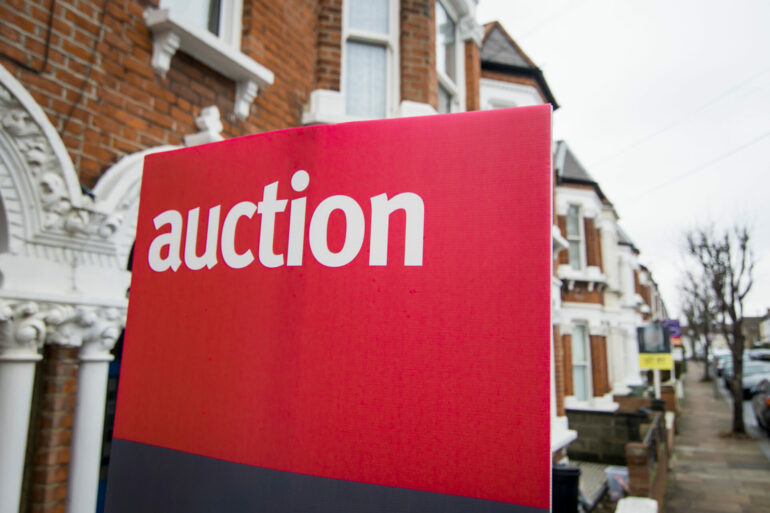Auctions have long been a favourite for those seeking property bargains and despite a drop in demand in the broader property market, auction houses are thriving.
The UK’s largest property auctioneer, Auction House, recently reported a 20% increase in property sales so far this year, compared to the same period in 2022.
Between January and August, the group successfully auctioned 2,913 lots, compared to 2,424 last year. Even in the typically quieter month of August, 269 lots went under the hammer, marking an 11% increase compared to the previous year.
The trend of selling and buying at auction shows no signs of slowing down, with Auction House seeing 897 lots entered into its September auctions – a significant uptick from the 600-650 properties entered in the previous three months.
The Covid-19 pandemic saw a surge in the popularity of online bidding, further adding to the appeal of auctions, as potential buyers were no longer obligated to attend events in person.
Traditionally, auction houses have appealed to both novice and more experienced investors. As we see increased pressure surrounding stress tests in the buy-to-let (BTL) market, we may see their appeal increase further, with cheaper properties potentially yielding higher returns through refurbishment.
We have also heard reports in recent months of landlords selling off older properties with a low Energy Performance Certificate (EPC) rating. This may in part, help explain the high number of properties we are seeing go through auctions.
Additionally, with the affordability challenges facing many first-time buyers, this cohort of borrowers may also be turning to auctions in search of a doer-upper.
As we continue to see more buyers turning to auctions, both in person and online, specialist lenders can help clients when it comes to their finance needs.
Auctions are renowned for their fast-paced nature, typically requiring winning bidders to complete their purchase within just 28 days. Successful purchasers must also pay a 10% deposit on the day, along with any other applicable charges detailed in the buyer’s guide.
While bridging loans are a natural choice due to their quick turnaround, securing a mortgage may also be possible for properties in good condition.
Before auction day, bidders will need to carry out their due diligence on the property and know the legal pack inside out. Part of this process will involve determining whether a property is mortgageable. If this is the case, bidders will need to secure their mortgage offer before they bid and stick within their budget, as once the hammer falls, they will be legally committed to the purchase.
Many properties at auction are fixer-uppers however and may be unmortgageable due to structural defects or other issues associated with the property. In such cases, a bridging loan or auction finance loan may be the most suitable option or a specialist light or heavy refurbishment loan if the property is to be renovated in order to make it mortgageable.
Mortgage rates have started to stabilise in recent months, with predictions that the Bank of England base rate may have reached its peak or be close to reaching it. This could potentially mean those looking to refurbish the property could secure a lower mortgage rate when they remortgage up to 18 months down the line.
While the process of bidding at auction can be straightforward, some clients may find the process of securing finance more complex, potentially involving the use of personal or business assets as additional loan security.
Due to the unique nature of buying at auction, those seeking finance will almost certainly need the assistance of a broker to secure specialist finance solutions. This could be an area where brokers see increased demand in the coming months, with specialist lenders like ourselves able to help.
Anna Lewis, commercial director at Castle Trust Bank



